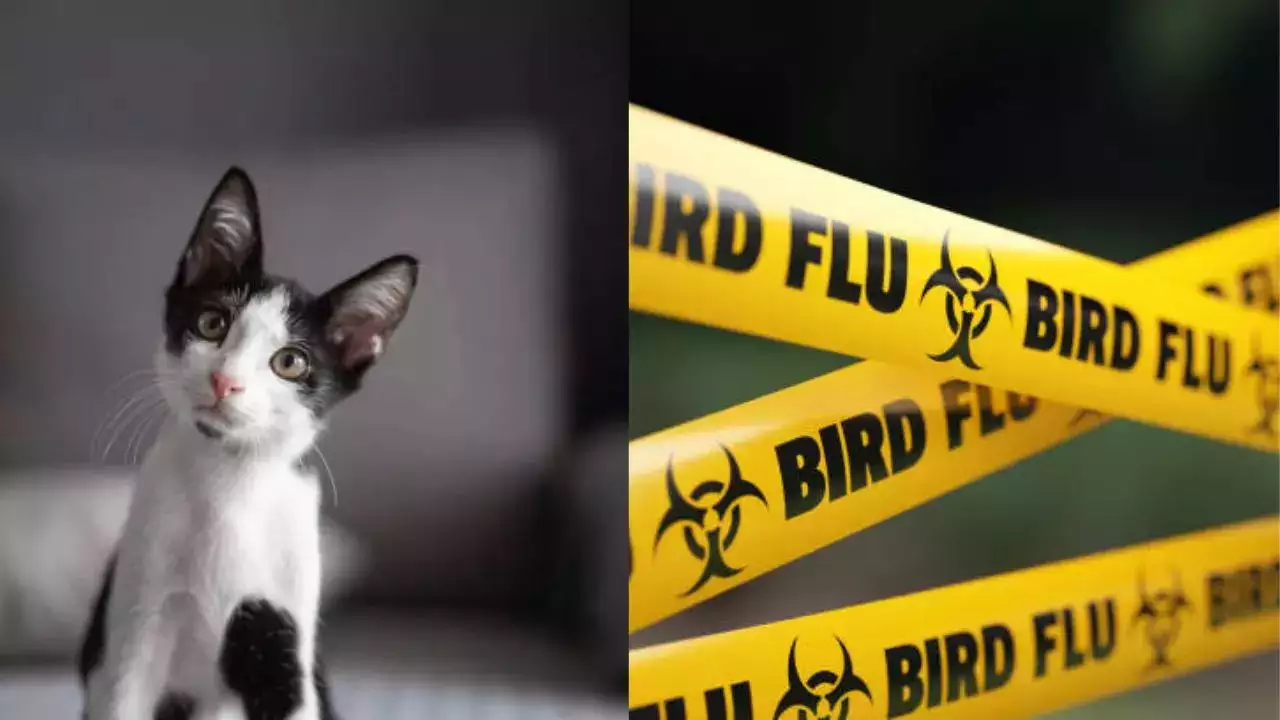Ashima Sharda Mahindra • 13 Dec 2024
Study Warns Cats Might Be Bird Flu Carriers

H5N1 virus, which began circulating earlier this year, has killed many cats living in the farms where herds were infected
Bird flu is usually associated with poultry, wild birds and now even humans. However, the scientists are now warning that cats could potentially be prompting a public health crisis by spreading the H5N1 avian influenza.
According to a new study published in the journal Emerging Microbes and Infections, domestic cats could become an unexpected player in the evolution and transmission of the H5N1 bird flu virus, potentially creating opportunities for it to become more dangerous.
The virus, which began circulating in dairy cattle earlier this year, has killed many cats, mainly on farms where herds were infected. It has also sickened at least 60 people, most of whom had direct contact with infected dairy cows or poultry. H5N1 does not currently spread easily among humans, but studies suggest just one or two key mutations could allow it to jump between people more readily.
While there is no evidence that cats have transmitted H5N1 to humans, researchers caution that these pets may still present a risk.
How are cats spreading the deadly virus?
Scientists say the virus, which began circulating across the United States earlier this year, has killed many cats living in the farms where herds were infected. Bird flu has also sickened at least 60 people, most of whom had direct contact with infected dairy cows or poultry.
H5N1 does not currently spread easily among humans, but according to various research, just one or two key mutations could allow it to jump between people more readily. While there is no evidence that cats have transmitted H5N1 to humans, experts have warned that the pets may beat risk of doing so.
According to scientists, if a cat gets infected with both avian influenza and another seasonal flu virus at the same time, the H5N1 could potentially acquire mutations needed to spread widely among humans. Cats frequently mingle with both wild animals and people, which could turn them into carriers for the virus to evolve further.
USDA to test national milk supply
The US Department of Agriculture has recently announced plans to test the national milk supply to identify which dairy herds have been infected. Other than that, the media has reported that no other government agency has to date taken any responsibility for tracking any other animals.
The milk testing will begin next week and, as reports say, is designed to reassure farm workers about the safety of their animals and their ability to protect themselves from infection. It should also help officials track the virus’s spread among herds.
Ten outdoor cats died of symptoms similar to bird flu in South Dakota
In the latest study, researchers investigated a case in South Dakota where 10 outdoor cats that were considered pets died after showing respiratory and neurological symptoms. The virus isolated from the cats closely resembled the strain found in cattle on a nearby dairy farm.
Scientists believe the cats were infected after eating wild birds that had carried the virus from the farm. According to the USDA, since 2022, at least 53 domestic cats across the United States have been infected with H5N1.
And apart from cats, the current H5N1 strain has already infected an unusually wide range of species, including birds and mammal species.
Get Latest News Live on Times Now along with Breaking News and Top Headlines from Health and around the world.